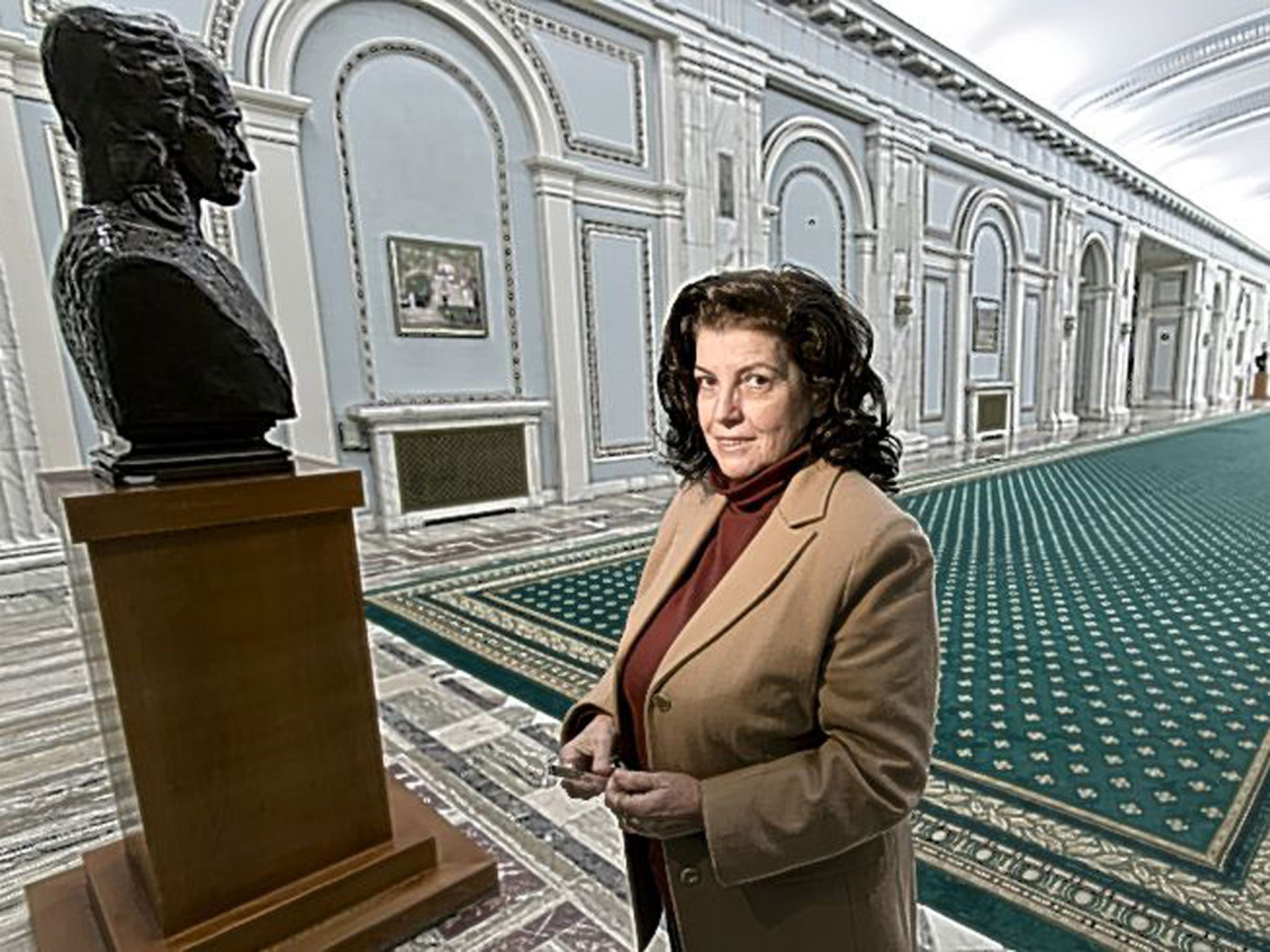Anca Petrescu: Architect who designed Ceausescu's 'Palace of the People'

Your support helps us to tell the story
From reproductive rights to climate change to Big Tech, The Independent is on the ground when the story is developing. Whether it's investigating the financials of Elon Musk's pro-Trump PAC or producing our latest documentary, 'The A Word', which shines a light on the American women fighting for reproductive rights, we know how important it is to parse out the facts from the messaging.
At such a critical moment in US history, we need reporters on the ground. Your donation allows us to keep sending journalists to speak to both sides of the story.
The Independent is trusted by Americans across the entire political spectrum. And unlike many other quality news outlets, we choose not to lock Americans out of our reporting and analysis with paywalls. We believe quality journalism should be available to everyone, paid for by those who can afford it.
Your support makes all the difference.Anca Petrescu, who died on 30 October at the age of 64, was the chief architect of Bucharest's Palace of the Parliament, or "Palace of the People," a massive government structure described as a huge Stalinist wedding cake. Petrescu had been in a coma following a car crash in September.
The palace is the world's second-largest administrative building after the Pentagon. It spans 3.77 million square feet and is perhaps the most visible legacy of Romania's late dictator, Nicolae Ceausescu.
Appointed the building's chief architect in 1978, Petrescu worked at the still-unfinished palace until her accident. She said in an interview last year that Buckingham Palace and the Palace of Versailles were her artistic inspirations for the building, and not North Korean architecture, as had been widely reported.
Petrescu, who was born in Sighisoara in the Transylvania region of Romania in 1949. recalled in an interview last year that Ceausescu, who was tried and executed on Christmas Day 1989, and never got to use the palace, as being obsessed with detail, constantly inspecting the site. She said that were he alive to see what had become of the palace, which even hosts weddings and balls today, he "would make the sign of the cross", meaning that he would have been horrified.
When Ceausescu's regime fell Petrescu was criticised for her role in creating the grandiose building, on which approximately a million Romanians worked round the clock Around 9,000 homes were demolished, churches and synagogues were razed or moved, and two mountains of marble were hacked down for the 275ft-high palace to be built.
But Romanians have since come to appreciate the palace. Its tenants include the Romanian Parliament, the Constitutional Court and the South-east European Law Enforcement Centre, which fights crime, including smuggling and fraud. Ceausescu had intended the building to house the presidency along with other government agencies. It has acquired celebrity status: Michael Jackson moonwalked in front of the palace, while the former US President George W Bush, the Russian President Vladimir Putin and the German Chancellor Angela Merkel have all made speeches there.
Join our commenting forum
Join thought-provoking conversations, follow other Independent readers and see their replies
Comments